Best Divorce & Separation Lawyers in Copenhagen
Share your needs with us, get contacted by law firms.
Free. Takes 2 min.
Free Guide to Hiring a Family Lawyer
List of the best lawyers in Copenhagen, Denmark
About Divorce & Separation Law in Copenhagen, Denmark:
In Copenhagen, Denmark, divorces can be incredibly complex as it's necessary to adhere to the Danish Marriage Act. Under this act, there are two main types of divorce, mutually agreed (Simplified Divorce) and a separation that leads to a divorce (Separation & Subsequent Divorce). Both require an understanding of Danish law as it relates to marital property, spousal support, child custody, and visitation rights, among other issues.
Why You May Need a Lawyer:
Legal assistance can be crucial during a divorce or separation, especially in contentious situations where agreement on matters such as property division, spousal support, or child custody is hard to reach. A lawyer can ensure your rights are protected, assist in the negotiation process, and deal with the paperwork required by the Danish court system. Legal professionals can also provide support if issues arise after the divorce, such as modifications to custody or support orders.
Local Laws Overview:
The Danish Marriage Act states that a divorce may be granted immediately if both parties agree to the divorce and all related matters. However, if common agreement can't be found, the parties can file for a legal separation which can later be converted into a divorce. An important aspect of Danish divorce law is its community of property regime, essentially ruling that all property obtained during the marriage must be split equally between parties. This can have significant impact on financial settlements. Furthermore, child custody arrangements are primarily based on the child's best interests, often aiming for joint custody whenever possible.
Frequently Asked Questions:
1. How long does it take to get a divorce in Copenhagen?
For an uncontested divorce where both parties agree, it can be finalized within a few weeks. If the divorce is contested and goes to court, it could take months or even longer.
2. What is the process for filing for divorce?
Divorce applications have to be filed with the State Administration. The process tends to be swifter if there is an agreement between both parties on all matters relating to the divorce.
3. How is child custody determined?
Child custody is determined by a variety of factors, with the primary consideration being the best interests of the child. Courts will typically consider the child's age, the child's wishes (if they're of a certain age), and each parent's ability to care for the child.
4. Do we have to divide everything 50/50?
Generally, under Danish law, marital property is typically divided equally. However, the exact division can vary and take into factors like length of marriage and individual financial situations. It's always best to consult with a legal professional.
5. Can I get a divorce without a lawyer?
While it is physically possible to get a divorce without legal representation, it's highly advised not to, especially in cases involving property division or child custody. Legal advice can protect your rights and ensure the divorce agreement is fair and valid.
Additional Resources:
Denmark's Agency for Family Law is the governmental body responsible for divorce and has resources for understanding and navigating the process. NGOs such as the National Association for Children's Welfare (Børnesagens Fællesråd) can offer guidance and support, particularly in cases involving child welfare and custody. It's recommended to consult with a local lawyer for personalized legal advice
Next Steps:
If you need legal assistance in a divorce or separation matter, it's crucial to find a lawyer specializing in family law in Denmark. Ensure that they are familiar with the process of divorce in Copenhagen. Collect all necessary documents such as marriage certificates, evidence of cohabitation, and financial records as these will be required during the process. Lastly, remember to maintain open communication with your legal adviser throughout the process.
Lawzana helps you find the best lawyers and law firms in Copenhagen through a curated and pre-screened list of qualified legal professionals. Our platform offers rankings and detailed profiles of attorneys and law firms, allowing you to compare based on practice areas, including Divorce & Separation, experience, and client feedback.
Each profile includes a description of the firm's areas of practice, client reviews, team members and partners, year of establishment, spoken languages, office locations, contact information, social media presence, and any published articles or resources. Most firms on our platform speak English and are experienced in both local and international legal matters.
Get a quote from top-rated law firms in Copenhagen, Denmark — quickly, securely, and without unnecessary hassle.
Disclaimer:
The information provided on this page is for general informational purposes only and does not constitute legal advice. While we strive to ensure the accuracy and relevance of the content, legal information may change over time, and interpretations of the law can vary. You should always consult with a qualified legal professional for advice specific to your situation.
We disclaim all liability for actions taken or not taken based on the content of this page. If you believe any information is incorrect or outdated, please contact us, and we will review and update it where appropriate.

















